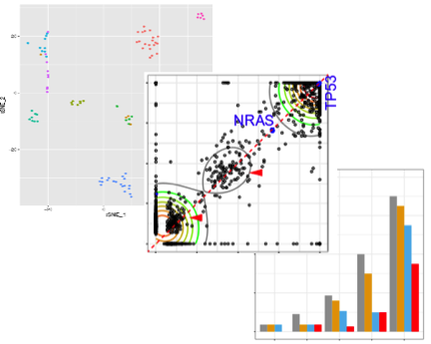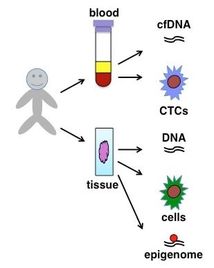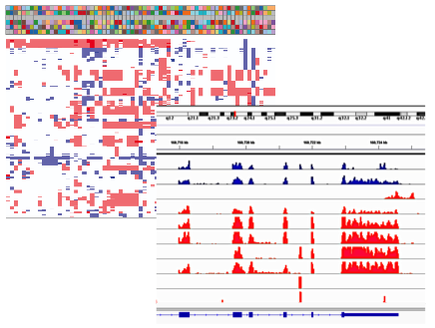Mission
Our goal is to understand how resistance to therapy develops in patients with cancer, and how it can be prevented. We are developing biological and computational tools to understand cancer biology. We are utilizing "liquid biopsy" approaches to follow the genomic and molecular evolution of cancer and translate our findings into new therapeutic approaches.
|
Deciphering drug resistance mechanisms in Multiple Myeloma. Multiple Myeloma can be treated successfully in almost all patients and long-term survival is possible, but the disease cannot be cured. One reason for the lack of cures is the fact that multiple myeloma possesses great molecular heterogeneity and that it adapts and changes all the time. We are investigating those changes that occur when multiple myeloma becomes resistant to drugs and we develop strategies to understand and prevent the molecular mechanisms of drug resistance. We are applying whole genome and whole exome DNA sequencing and RNA sequencing from bulk or single cells. We are developing and applying computational methods to integrate high-dimensional data and understand the genomic and molecular evolution that contributes to drug resistance.
|
|
Developing new experimental and computational methods to make tissue biopsy obsolete. We are developing "liquid biopsy" approaches to obtain biological information about cancer, simply from a vial of blood. We focus on circulating tumor cells (CTCs) and circulating cell-free DNA (cfDNA) that can be obtained from the circulation of cancer patients. Using next-generation sequencing and other high-throughput methods we can follow how cancer changes in real-time. These technologies help us to gain insight into cancer, even when a tissue biopsy is not possible. We develop innovative computational methods to analyze genomic and molecular changes over time and harness these approaches to better predict prognosis and identify treatments.
Harnessing the power of the immune system to develop new therapies. The immune system has been shown to be a powerful friend or foe in cancer treatment. Understanding the spatial composition and heterogeneity of cancer as well as the cross-talk of cancer cells with the tumor microenvironment is crucial for the understanding of cancer progression. We are developing novel experimental and computational approaches to understand the composition of the tumor and the interaction of the malignant and immune cells. We are developing approaches to exploit the immune system's ability to fight cancer.
|



